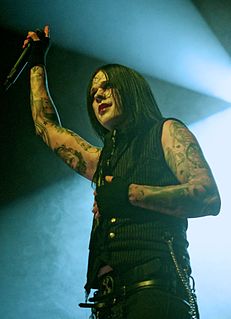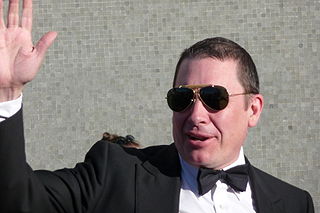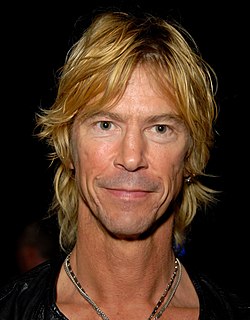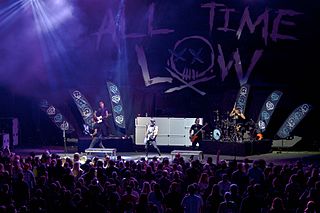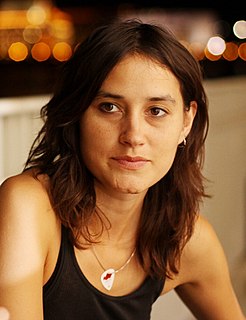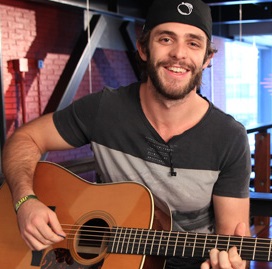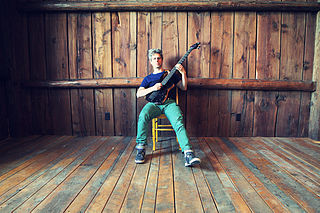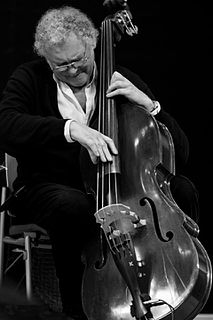A Quote by Wednesday 13
When The Murderdolls started it was a really cool thing, especially for me because I had never done anything on that scale before. Even for our drummer and bass player it was their first really big band.
Related Quotes
I consider us to be one of the first Internet-based bands, especially because we basically started our entire band via the Internet. Before MySpace Music even existed, we had a band MySpace page. We were one of the first fifty bands on PureVolume(.com), and we really built everything from the Internet. That's how we started talking to record labels, that's how we booked our first tours. Without the Internet social networking, like Twitter, we definitely wouldn't be where we are today. It is a huge part of the band.
We haven't started playing it live yet but we're going to. And then 'Warpaint' is a song that's really, really close to me because it's actually - we've had that song for many years now and it's changed so many times, it's been through every reincarnation of our band with every drummer, with sometimes with me playing drums, it was when we were a three-piece, every incarnation of the band that we've had we have played that song.
I was a guitar player in a band that had two keyboard players, sometimes two other guitarists, a bass player, and a drummer, four or five singers, and percussion. We did a two-and-a-half hour show where the music spanned from the early Sixties to the present. Whereas the David Lee Roth thing was like, Now. Very big and intense.
Early on, before rock 'n' roll, I listened to big band music - anything that came over the radio - and music played by bands in hotels that our parents could dance to. We had a big radio that looked like a jukebox, with a record player on the top. The radio/record player played 78rpm records. When we moved to that house, there was a record on there, with a red label. It was Bill Monroe, or maybe it was the Stanley Brothers. I'd never heard anything like that before. Ever. And it moved me away from all the conventional music that I was hearing.
I think the most note-worthy part is that Stella [Mozgawa] had joined the band two weeks before we started recording, so that really influenced the way that the album was recorded. It was really important for Stella and Jen[ny Lee Lindberg] to lay down the drums and bass first for most songs, because they were determining how they needed to lock in together, and Stella was still kind of learning and figuring out her parts.
When we started the band, I was really like, "We just want to make a lot of records" - not quite unlike Guided By Voices' schedule. I've always thought that our live thing is what we do best, and having a really robust, big catalog makes for the most interesting live band - especially with people, at this point, traveling to see us night after night. For us to have almost 100 songs to pull from is a really cool thing. The sets can be different. They can be invigorating on an intellectual level. I definitely hope to continue to release records at an accelerated pace.
